Our latest VS feature is a microlot of 100% Pacamara, a varietal that usually takes the top positions at the Cup of Excellence competitions. It’s not a coincidence that this is the goal of its producers, Guillermo and Willy.
VERY SPECIAL
This is the first time we’re featuring the Guatemalan origin and the Pacamara varietal on Brew Crew VS, and once you brew it, you’ll know why. Its clean, tropical, and floral qualities come from the combination of this varietal’s genetics plus the passion and professionalism of a coffee-producing family with more than a century’s worth of knowledge.
We’re lucky to share a part of a tiny microlot bought entirely by Melbourne Coffee Merchants—an Australian green coffee importer that joined us in becoming B Corporation certified. Congrats!
LA FAMILIA
The estate was first established in 1910 by Daniel Juarez, who planted it with Typica and Mundo Novo varieties, and was the first commercial coffee plantation in the region. Daniel’s son, Juan Alberto, took over the farm in the 1970s, focusing on growing the estate’s commercial operations and expanding its land. In 2010, Juan Alberto handed the business to his son Guillermo; today, he looks after the agronomy together with his own son, Willy (the 4rth generation!), who manages de process operations at the wet and dry mills.
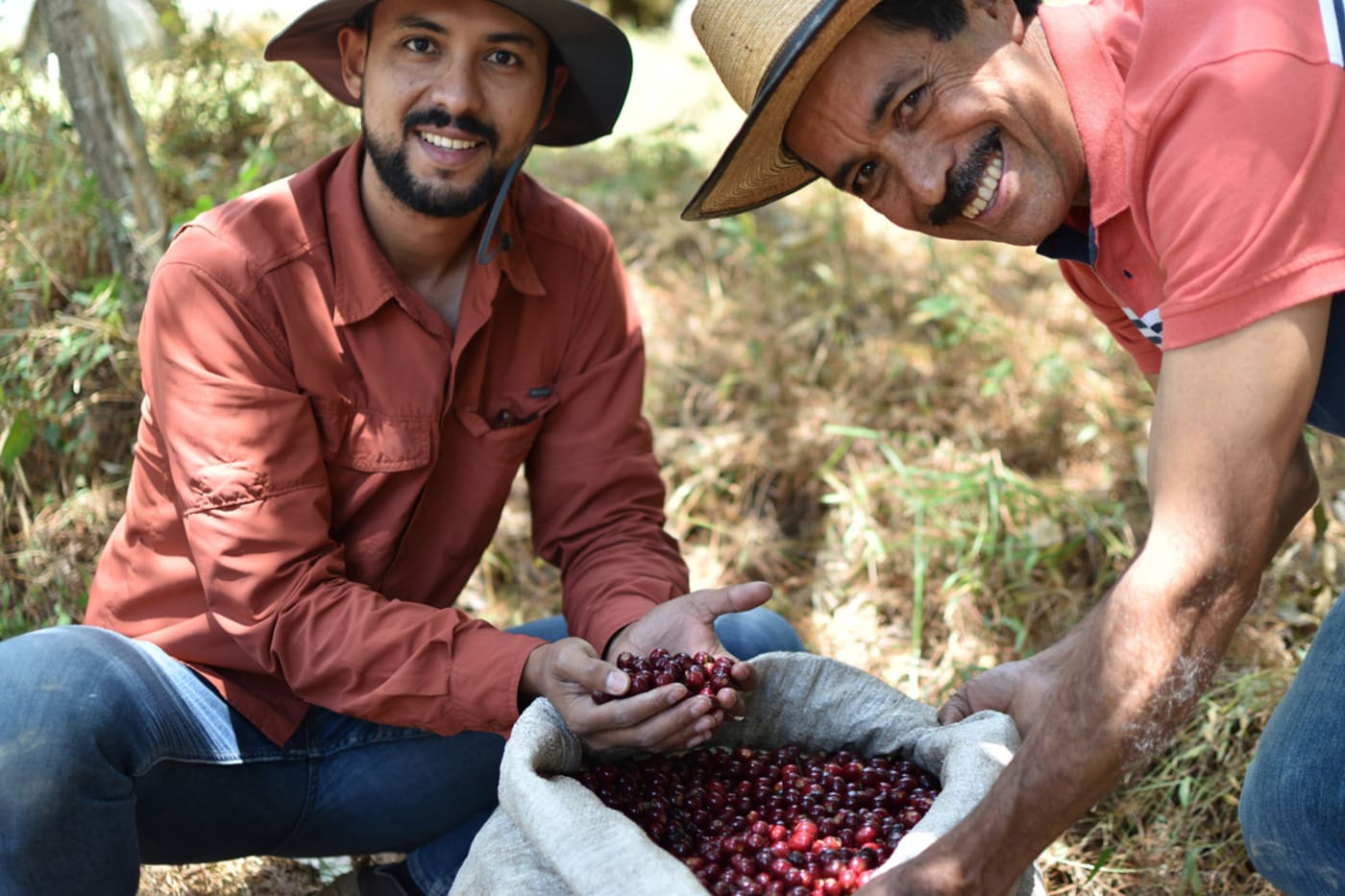
Guillermo (pictured right) worked as an agronomist for many years, and today works on the farm with his son, Willy (pictured left).
LA BUGAMBILIA AND EL GUATALÓN ESTATE
El Guatalón estate is divided by altitude and soil type into 5 parcels of land: La Bugambilia, El Cuje, Los Pajuiles, and Guatalón (all these in the municipality of Santa Rosa de Lima) and La Loma (located in the neighbouring Mataquescuintla). Each generation has introduced new varieties, including Typica, Mundo Novo, Pache, San Ramon, Caturra, Catuaí and most recently Villa Sarchi, Pacamara and Maragogype. These varieties flourish in different microclimates, which they are lucky to access thanks to the varied characteristics of every parcel.
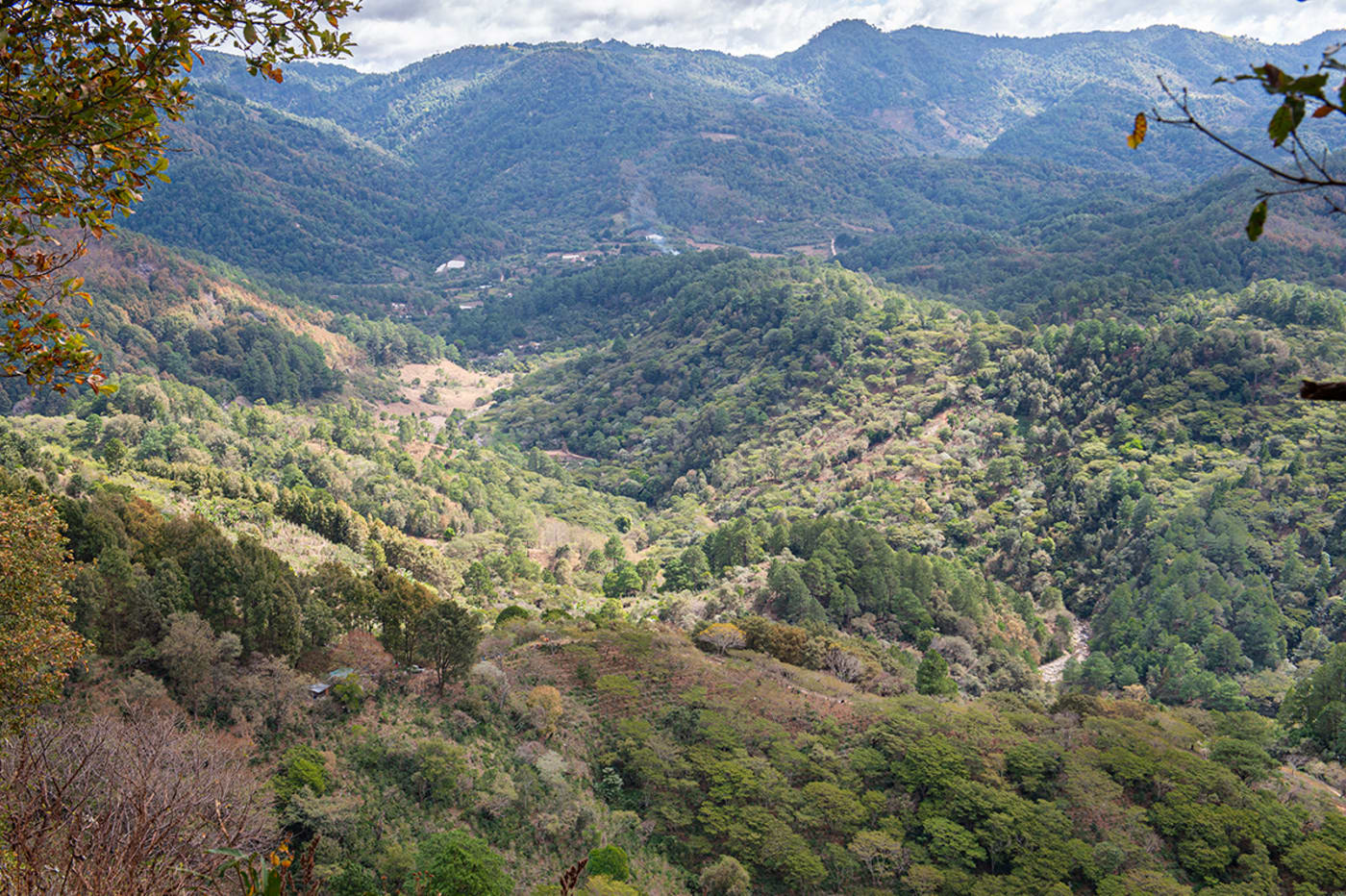
Santa Rosa’s unique topography, with a range of microclimates, offers great potential for specialty coffee production
La Bugambillia is a 40-hectare plot that sits at an elevation of 1,450-1,850m above sea level. It is named after the Bougainvillea plant, which is very common in Guatemala and has vibrant pink and purple flowers.
Only 18 hectares grow coffee trees, specifically the Pacas, Caturra, Bourbon Amarillo, Geisha and Pacamara varietals. Native trees like oak, cedar, Garvilea and Cuje—generally taller and with a larger canopy—occupy the rest of the land, protecting the coffee trees from direct sunlight and harsh winds and contributing to preserving the local flora and fauna. (This is what we know as shade-grown coffee.)
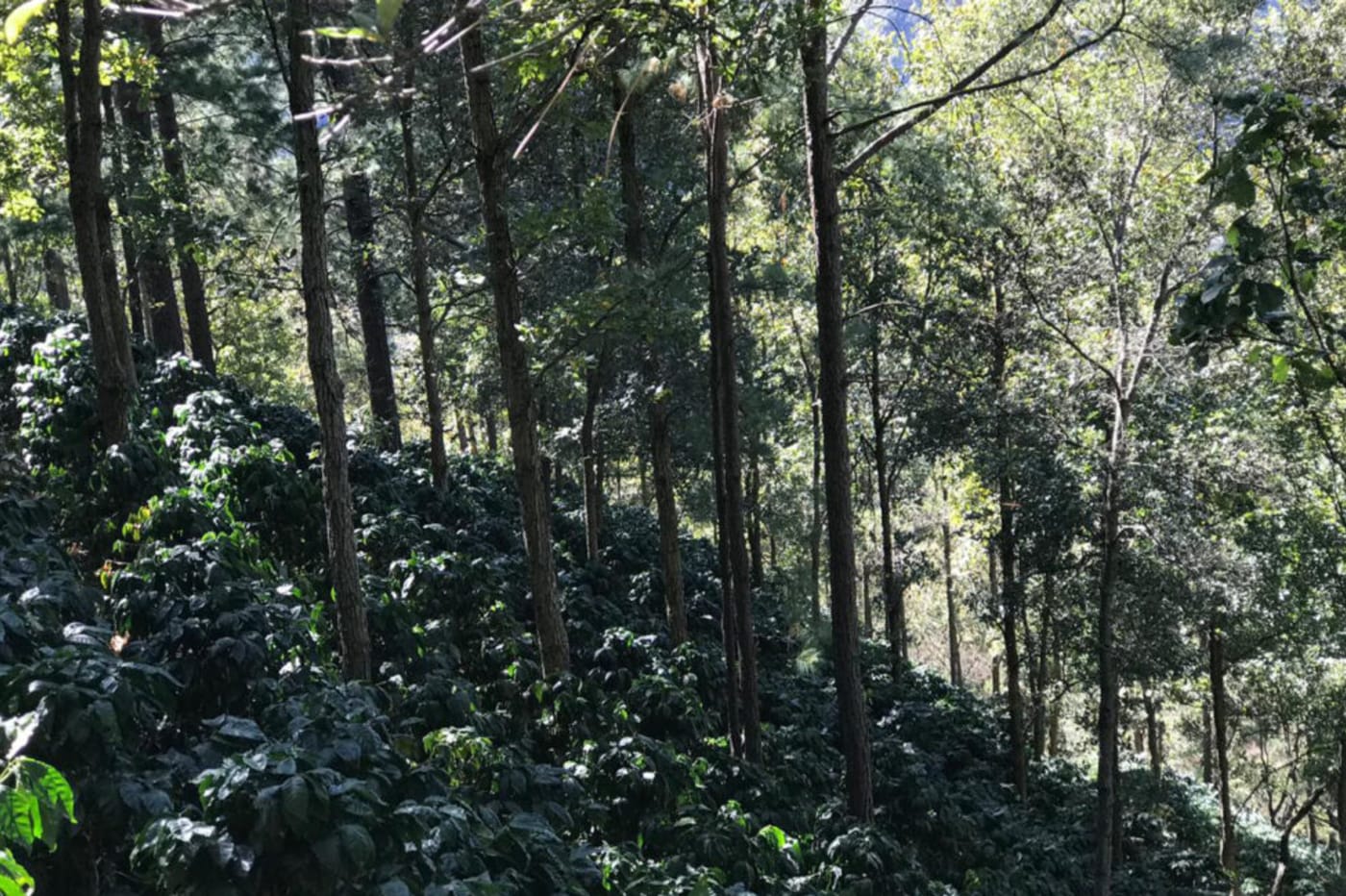
The shade at work at Guatalón state
PACAMARA = EXCELLENT
This lot is 100% Pacamara, a variety that thrives on the La Bugambillia plot and produces extremely high-quality cupping coffees. Originating from a cross between Pacas and Maragogipe, it is grown primarily in El Salvador, where it frequently dominates the Cup of Excellence—a competition the producer knows well.
When Guillermo took over the estate, he shifted toward specialty coffee production (more premiums, financial sustainability, better living). At some point, he heard about the Cup of Excellence and decided to participate. In 2012 they came very close to qualifying (finishing 24th and just outside the final lineup of 23 farms), and only a couple of years later, in 2014, they were thrilled to receive their first accolade. Since then, the farm has been awarded nearly every year, most recently in 2022, when two lots placed 17th and 11th.
The awards and recognition are very motivating for Guillermo, who loves a challenge: “We want to go further. We know we can deliver higher quality. After all, we know living and succeeding is just about that: always make an extra effort.”
MIGHTY WASHED PROCESS
Harvest begins in December and concludes in March.
The handpicked and ripe beans are processed at the family’s wet mill in Samororo (located close to the La Loma plot). After being depulped, they ferment for 24-40 hours and then washed to remove any remaining pulp. The last stage is to dry on patios, where the beans are turned regularly to ensure they dry slowly and evenly. Once dry, the coffee is rested in the parchment until it is ready for export.
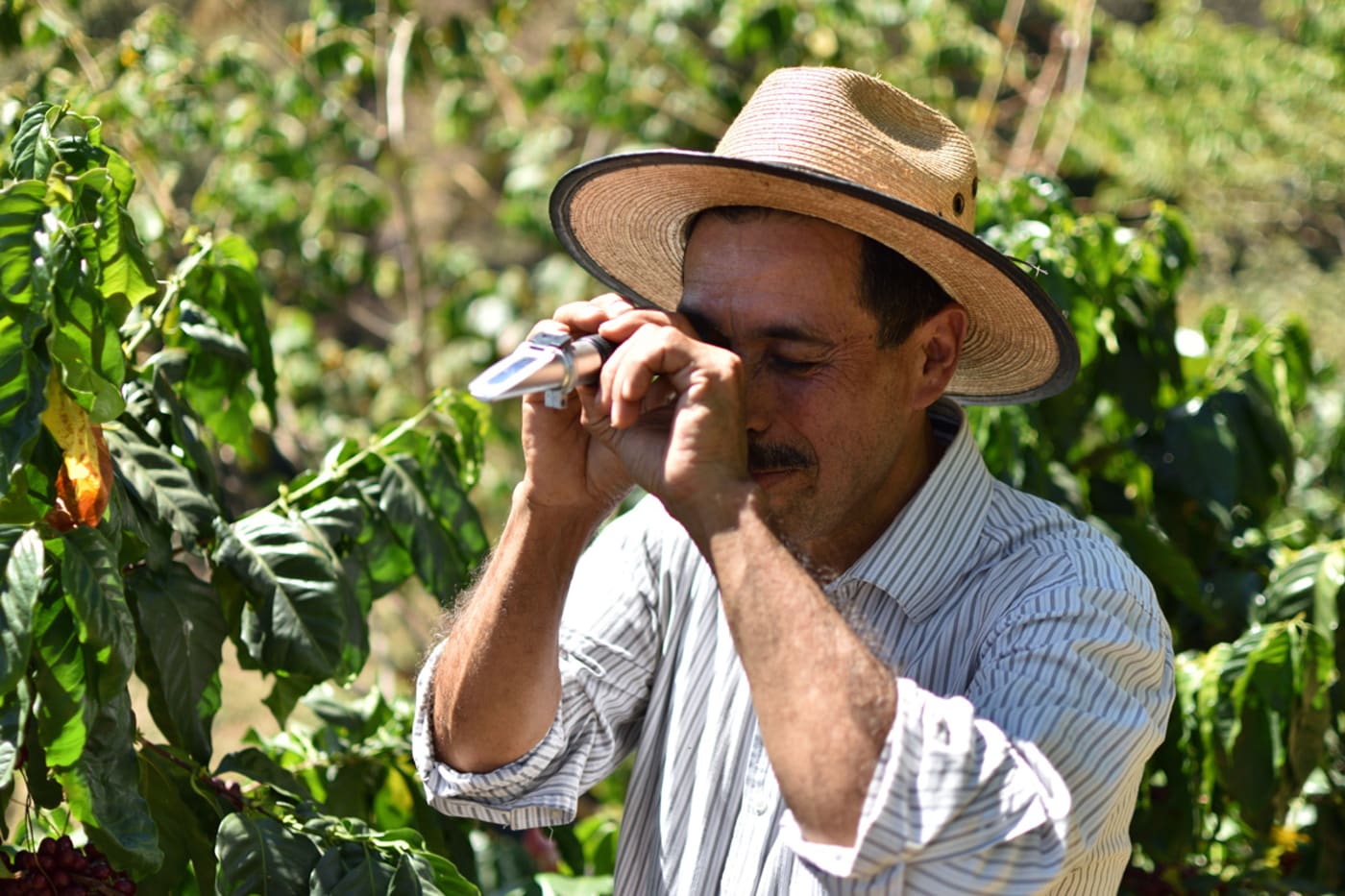
Checking the quality from step 1: cherrypicking
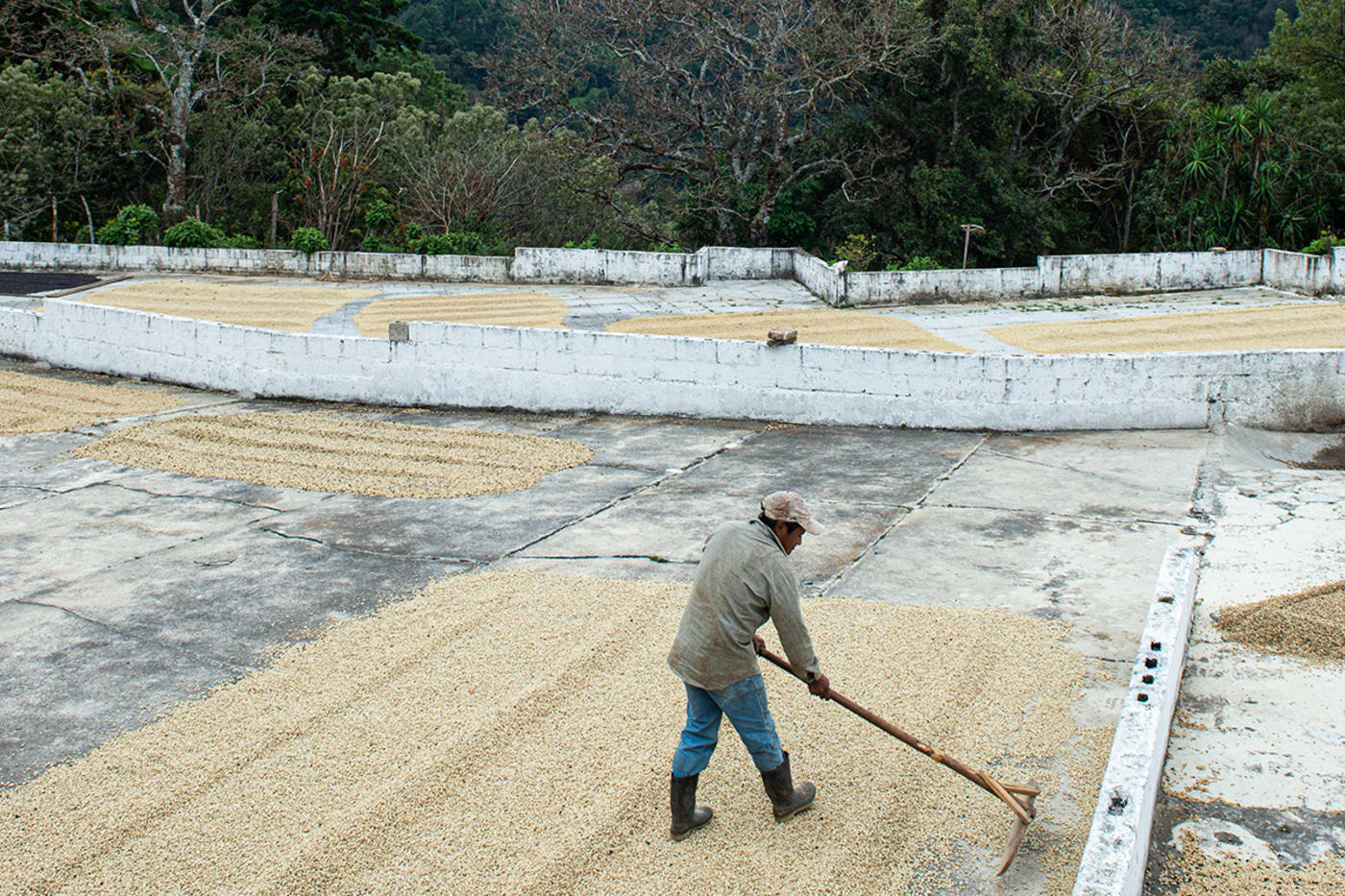
The drying patios at Samororo
BREW, SHARE AND ENJOY
Try the team’s recipe (see below) or find your best method (and let us know how it went!). If you have any questions or need other tips to get started, please say reach out anytime at [email protected] or via @samplecoffee.
All images and information about this coffee and producers have been kindly shared by its importer, Melbourne Coffee Merchants, and edited by us, Sample Coffee (unless linked to or credited otherwise). Learn more here.






